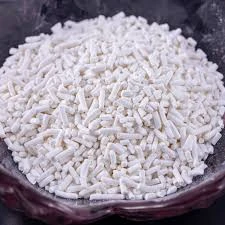
flavor enhancer monosodium glutamate
Monosodium Glutamate The Flavor Enhancer
Monosodium glutamate, commonly known as MSG, is a popular flavor enhancer that has sparked much debate and discussion since its introduction to the culinary world. It is a sodium salt of glutamic acid, a naturally occurring amino acid found in many foods, including tomatoes, cheeses, and mushrooms. MSG is widely recognized for its ability to enhance umami, which is often referred to as the fifth taste, alongside sweet, sour, bitter, and salty.
Monosodium Glutamate The Flavor Enhancer
Despite its widespread use, MSG has been surrounded by controversy, primarily due to anecdotal reports linking it to adverse health effects, a phenomenon often referred to as Chinese restaurant syndrome. This term emerged in the late 1960s when several individuals reported symptoms such as headaches, flushing, and sweating after consuming food seasoned with MSG. However, extensive scientific research has not conclusively established a direct link between MSG and these symptoms. Regulatory agencies, including the U.S. Food and Drug Administration (FDA) and the World Health Organization (WHO), have deemed MSG to be safe for consumption when used in moderation.
flavor enhancer monosodium glutamate

The appeal of MSG lies in its ability to enhance flavor without the need for excessive salt or sugar. In an age where health consciousness is on the rise, many chefs and food manufacturers are exploring ways to deliver flavor while reducing sodium levels in their products. MSG allows for a rich umami taste that can elevate the overall flavor profile of a dish while maintaining a lower salt content, making it an attractive option for those looking to create flavorful meals without compromising health.
In addition to its culinary applications, MSG is also utilized in various food products, including snacks, soups, sauces, and processed meats. Its versatility in transforming bland ingredients into delicious dishes has made it a staple in both professional kitchens and home cooking. Chefs appreciate that a small amount of MSG can amplify the flavors of a dish that may otherwise lack depth or complexity.
Despite its effectiveness, MSG has found itself at the center of ongoing debates about food additives and consumer choice. Some consumers prefer to avoid all additives, while others embrace them for their practicality and ability to enhance flavor. As food awareness continues to evolve, many people are becoming more informed about the ingredients in their food and are making choices based on personal preferences, dietary restrictions, and potential health implications.
In conclusion, monosodium glutamate remains a fascinating and complex ingredient in the culinary landscape. While it has faced scrutiny over the years, its status as a safe flavor enhancer has been supported by scientific evidence. Chefs, food manufacturers, and home cooks alike can use MSG judiciously to maximize the flavor of their dishes without relying solely on salt. As with many aspects of food, moderation and knowledge are key, and understanding MSG’s role in enhancing flavor can lead to delicious and satisfying culinary experiences.
-
Aluminum Hydroxide: Quality Gels & Dried Gel AntacidNewsAug.31,2025
-
Buy High-Quality Trichloroisocyanuric Acid for Sale | TCCA 90% SupplierNewsAug.30,2025
-
Pure Sodium Dichloroisocyanurate Dihydrate | Powerful DisinfectantNewsAug.29,2025
-
Industrial Chemicals: Quality & Purity for Every IndustryNewsAug.28,2025
-
Nitrile Rubber Honoring Strict Production StandardsNewsAug.22,2025
-
Aspartame Ingredients Honoring Food Safety ValuesNewsAug.22,2025
-
Fertilizer for Balanced Plant NutritionNewsAug.22,2025
Hebei Tenger Chemical Technology Co., Ltd. focuses on the chemical industry and is committed to the export service of chemical raw materials.
-

view more DiethanolisopropanolamineIn the ever-growing field of chemical solutions, diethanolisopropanolamine (DEIPA) stands out as a versatile and important compound. Due to its unique chemical structure and properties, DEIPA is of interest to various industries including construction, personal care, and agriculture. -

view more TriisopropanolamineTriisopropanolamine (TIPA) alkanol amine substance, is a kind of alcohol amine compound with amino and alcohol hydroxyl, and because of its molecules contains both amino and hydroxyl. -

view more Tetramethyl Thiuram DisulfideTetramethyl thiuram disulfide, also known as TMTD, is a white to light-yellow powder with a distinct sulfur-like odor. It is soluble in organic solvents such as benzene, acetone, and ethyl acetate, making it highly versatile for use in different formulations. TMTD is known for its excellent vulcanization acceleration properties, which makes it a key ingredient in the production of rubber products. Additionally, it acts as an effective fungicide and bactericide, making it valuable in agricultural applications. Its high purity and stability ensure consistent performance, making it a preferred choice for manufacturers across various industries.





